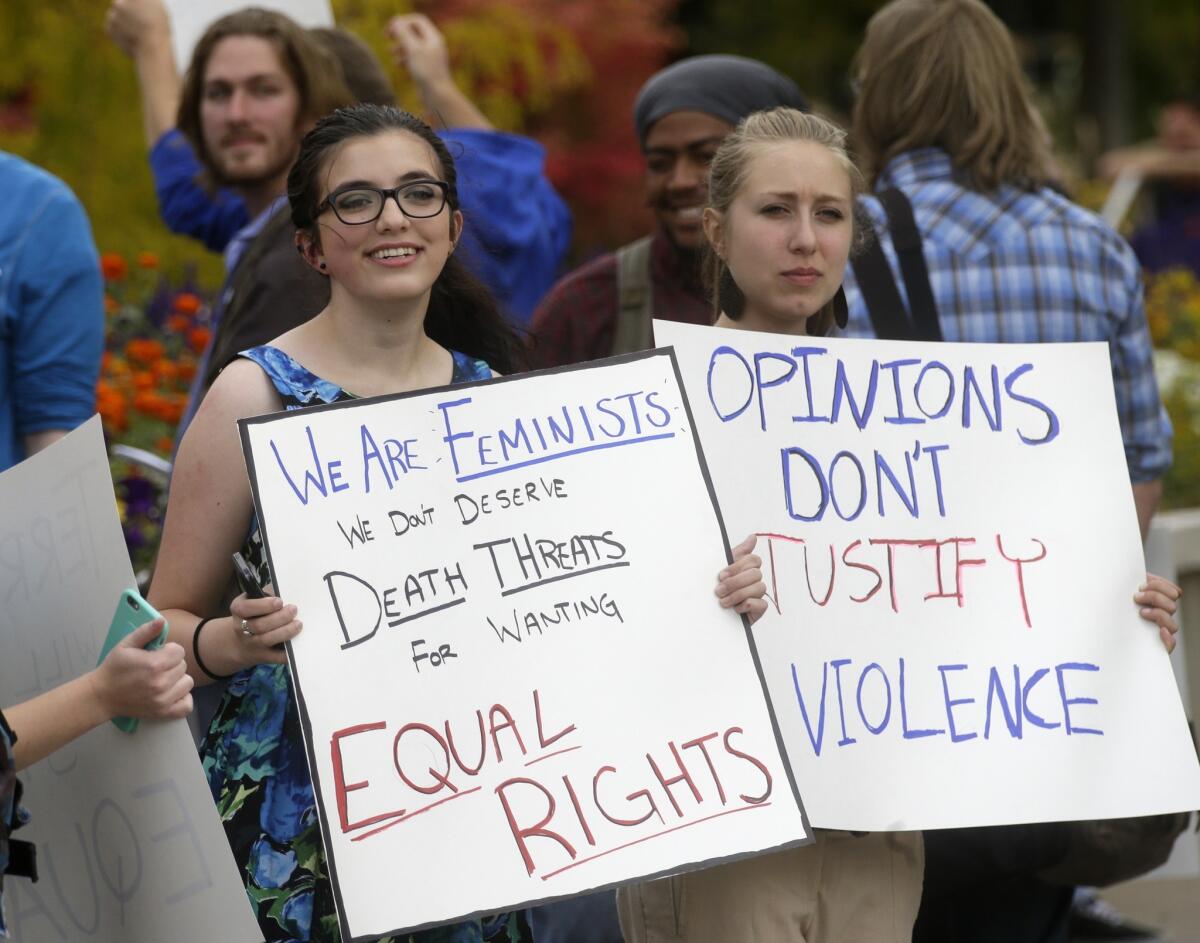Opinion: It’s time to silence ‘gamergate,’ end the misogyny in gaming culture

As threats of violence and sexual harassment aimed at women in the gaming community have escalated, so too has the mainstream attention -- and for good reason. Internet trolls have increasingly turned to online movements like “gamergate” as a tool to organize massive smear campaigns that target women or critics of sexist, racist and homophobic aspects of gaming culture.
This week feminist video game critic Anita Sarkeesian had to cancel a talk at Utah State University after the school received anonymous threats to enact “the deadliest school shooting in American history” if she spoke at the school. Threats like these are not unusual for Sarkeesian, but because Utah law prohibits campus security from excluding people from attending the event with their licensed weapons, she canceled.
Sadly, Sarkeesian is not the only female public figure in the gaming world facing death threats. Game developers like Zoe Quinn and Brianna Wu have all recently reported receiving threats so targeted and frightening that they fled from their homes in fear for their safety. Quinn made headlines when she was bombarded with vicious harassment after her ex-boyfriend posted a rambling essay on his blog alleging infidelity. And Wu became a target after she poked fun at gamergate on Twitter.
It may be tempting to dismiss these incidents as random threats by clearly disturbed individuals, or a problem relegated to an angry fringe group within the gaming subculture. But this isn’t just about video games and the changing face of gaming but a terrifying reminder of how enraged people become when they feel threatened by changes to a world in which they want to reign supreme.
Let’s not forget that while threats should always be taken seriously, they are also lobbed specifically at women in an attempt to silence them. Which means that all of the hard work done by those who intend to make the world -- whether virtual or otherwise -- more inclusive and just for everyone, is having ane effect. The old-guard gamer, who is white, straight and male, is seeing a world both in video games and in real life that is changing around him. Critics like Sarkeesian are calling out the racist, sexist and homophobic tropes often used in video games -- and that can be upsetting to those who don’t see the issue with those tropes in the first place.
But it’s not just a feminist reading of video games that is making people angry, but also how the face of gaming is changing. Gaming is fast becoming more diverse than ever. Women now make up nearly half of all video-gamers, and that makes some gamers upset that their boy’s club will never look the same.
Those that are threatened by changing culture, like the cowards who hide in the darkest corners of the Internet, will clearly not go down without a fight. And the anonymity of these virtual spaces allows some of the worst kind of reactionary commentary and threats to flourish. So it will take coordinated efforts by the likes of the FBI and online communities at large to come down hard on this kind of behavior to squash it. Until then we must support and listen to those who are agitating for change both online and in real life.
Susan Rohwer is a freelance journalist. Follow her on Twitter @susanrohwer.
Follow the Opinion section on Twitter @latimesopinion
More to Read
A cure for the common opinion
Get thought-provoking perspectives with our weekly newsletter.
You may occasionally receive promotional content from the Los Angeles Times.










